
The FDA’s approval of Enhertu marks the first approval of a drug for patients with HER2-mutant unresectable or metastatic non-small cell lung cancer.

Ryan McDonald, Associate Editorial Director for CURE®, has been with the team since February 2020 and has previously covered medical news across several specialties prior to joining MJH Life Sciences. He is a graduate of Temple University, where he studied journalism and minored in political science and history. He considers himself a craft beer snob and would like to open a brewery in the future. During his spare time, he can be found rooting for all major Philadelphia sports teams. Follow Ryan on Twitter @RMcDonald11 or email him at [email protected].

The FDA’s approval of Enhertu marks the first approval of a drug for patients with HER2-mutant unresectable or metastatic non-small cell lung cancer.

The FDA’s decision to grant the investigational drug elacestrant a priority review for patients with ER-positive, HER2-negative advanced or metastatic breast cancer was based on data that showed the treatment bested standard-of-care in terms of improving survival.
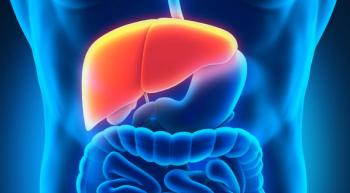
Treatment with Keytruda plus Lenvima did not best Lenvima alone as a first-line treatment option for a group of patients with liver cancer that could not be treated with surgery, according to recently announced study results from a phase 3 clinical trial.

Treatment with an investigational drug plus with Libtayo showed encouraging anti-tumor activity in patients with advanced metastatic castration-resistant prostate cancer, according to preliminary data from an early-phase trial.

Keytruda plus chemotherapy failed to best the chemotherapy docetaxel alone in patients with metastatic castration-resistant prostate cancer, according to findings of a study of more than 1,000 patients.

Treatment with Onivyde failed to best the chemotherapy topotecan in improving overall survival in patients with small cell lung cancer whose disease failed to respond to platinum-based first-line treatment, according to findings from a primary analysis of the phase 3 RESILIENT trial.

Enrollment has begun on a phase 3 clinical trial assessing the safety and efficacy of an investigational cell therapy in patients with acute myeloid leukemia, acute lymphocytic leukemia and myelodysplastic syndromes.

The findings add to a growing body of literature that demonstrate coffee and/or tea consumption is not detrimental to breast cancer survivors, according to the study authors.

Treatment with Opdivo plus standard of care chemotherapy followed by maintenance Opdivo or Opdivo plus Yervoy failed to elicit survival benefits compared with standard of care chemotherapy alone in patients with previously untreated advanced biliary cancer, which is a rare form of liver cancer.

The findings support future studies of assessing the safety and efficacy of the novel drug-chemotherapy combination as a maintenance strategy following stem cell transplantation across a range of blood cancers, according to the study authors.

The use of oral paclitaxel and encequidar induced superior outcomes in a group of patients with metastatic breast cancer, compared with paclitaxel delivered intravenously.

Treatment with FOLFIRINOX, a combination of several chemotherapy agents, prior to the surgical resection of pancreatic cancer increased survival outcomes when compared to historical data.

Investigators are analyzing the novel drug, OP-1250, both as a single-agent treatment option and in combination with Ibrance in patients with recurrent, locally advanced or metastatic ER-positive/HER2-negative breast cancer.

A first-in-human trial is investigating the safety and efficacy of the novel CAR-T cell therapy in patients relapsed or refractory T-cell acute lymphoblastic leukemia/lymphoblastic lymphoma.

The first patient enrolled onto a phase 1 trial has received TCMB07, an investigational drug, for the treatment of cachexia, a severe disorder that may occur in more than half of patients with advanced-stage cancer.

The safety, optimal dosage and efficacy of the investigational drug is currently being evaluated in a first-in-human trial in patients with recurrent high-grade glioblastoma, a type of spinal cord and brain cancer.

The FDA has permitted the manufacturer of a novel drug to continue a phase 3 clinical trial investigating the effects of treatment with a novel drug in patients with HER2/neu-positive primary breast cancer.
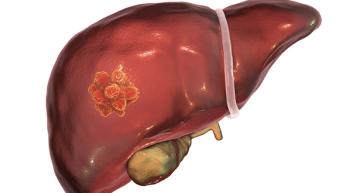
Treatment with Cabometyx in combination with Tecentriq induced superior progression-free survival outcomes and disease control rates versus Nexavar alone in patients with advanced hepatocellular carcinoma, the most common type of liver cancer.

Amazon and Fred Hutchinson Cancer Center recently launched an early-phase clinical trial to assess the safety and efficacy of a cancer vaccine in the treatment of patients with late-stage skin cancer or hormone receptor-positive, HER2-negative breast cancer.

The manufacturer of one of the cancer treatments announced that it is also participating in clinical trials assessing the safety and efficacy of their product in colorectal and endometrial cancer.

The use of a chemotherapy-free, combination regimen as a maintenance treatment option was associated with an improvement in survival in a group of patients with advanced pancreatic cancer.

The manufacturer of the novel CAR-T cell therapy announced it terminated an early-phase trial investigating the treatment’s efficacy after there was a lack of benefit in patients with relapsed or refractory T-cell lymphoma, a type of blood cancer.

A clinical trial reviewing the safety and efficacy of a treatment regimen of enoblituzumab in combination with either retifanlimab or tebotelimab in patients with recurrent or metastatic squamous cell carcinoma of the head and neck has been stopped by the manufacturer of the cancer drugs.

The FDA granted abelacimab a fast track designation for the treatment of thrombosis, a common and sometimes deadly type of blood clot associated with cancer.
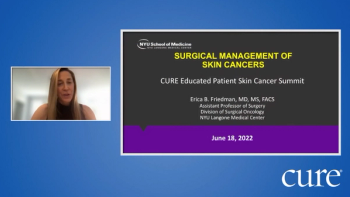
Watch Dr. Erica B. Friedman, from NYU Grossman School of Medicine, discuss surgery, during the CURE Educated Patient Skin Cancer Summit.

According to the manufacturer, this is the first-in-human clinical trial of Allocetra combined with chemotherapy in patients with peritoneal metastases arising from solid cancers.
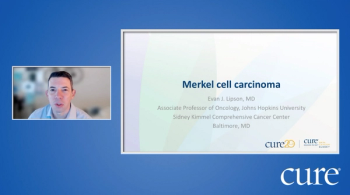
Watch Dr. Evan J. Lipson, from Johns Hopkins Medicine, discuss Merkel cell carcinoma, during the CURE Educated Patient Skin Cancer Summit.
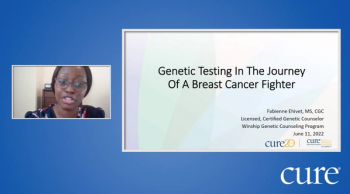
Watch Fabienne Ehivet, from Emory Saint Joseph’s Hospital, discuss genetic testing, during the CURE Educated Patient Metastatic Breast Cancer Summit.
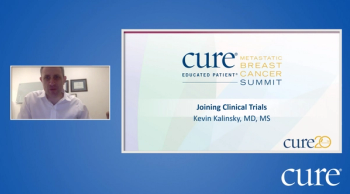
Watch Dr. Kevin Kalinsky, from Winship Cancer Institute of Emory University, discuss joining clinical trials, during the CURE Educated Patient Metastatic Breast Cancer Summit.

The FDA plans to accelerate its review of IK-930, an investigational drug, for the treatment of patients with unresectable NF2-deficient malignant pleural mesothelioma, a rare cancer.